You want to ensure your child is getting the best possible supply of essential omega-3 fatty acids. But which omega-3 source is the right one? What are the differences between algae oil and fish oil ? And what should you look for when buying them?
In this article, we'll take a close look at both sources of Omega-3. You'll learn about their advantages and disadvantages, how to properly dose Omega-3 for children, and how to make the best choice for your family.
Here you will learn...
The most important points in brief
Algae oil and fish oil provide DHA and EPA directly in a readily usable form – ideal for the Omega-3 supply of children.
High-quality algae oil is vegan, sustainable and free from pollutants – ideal for families who value a plant-based and clean source.
Fish oil offers a naturally balanced EPA/DHA ratio, but requires careful quality control (purity, TOTOX value, origin).
Why are Omega-3 sources so important for children?
Omega-3 fatty acids are essential nutrients that the body cannot produce itself. This means they must be obtained through diet (1). Particularly during growth phases, the omega-3 fatty acids DHA (docosahexaenoic acid) and EPA (eicosapentaenoic acid) play a key role in healthy development.
- DHA is a major component of cell membranes in the brain and the retina of the eye.
- EPA, in turn, contributes to normal heart function and has anti-inflammatory properties.
- The European Food Safety Authority (EFSA) recommends a daily intake of 250 mg of EPA and DHA for children aged two years and older (2)

Why many children consume too few omega-3 fatty acids
The challenge: Many children don't reach the recommended daily intake of omega-3 fatty acids. Fatty fish isn't a regular part of most families' diets, and there are several reasons for this:
- Taste : Many children simply don't like the taste of fish.
- Pollution : Concerns about the presence of heavy metals, microplastics and other environmental toxins are justified, especially in the case of larger fish from polluted waters.
- Aquaculture vs. wild-caught : Even when fish ends up on the table, it often comes from aquaculture. The problem is that farmed fish have significantly fewer omega-3 fatty acids than their wild counterparts.
The solution: To ensure a reliable and safe supply of Omega-3, it is worth relying on high-quality dietary supplements.

An overview of the most important Omega-3 sources
Not all omega-3 sources are created equal. A fundamental distinction is made between plant-based and marine omega-3 fatty acids:
- Plant-based omega-3 sources such as flaxseed oil, walnut oil, or chia seeds mainly contain alpha-linolenic acid (ALA). While the body can convert ALA into EPA and DHA, it can only do so to a very limited extent – often less than 10 percent. Therefore, these plant-based omega-3 sources are usually insufficient for optimal intake (3).
- Marine omega-3 sources like fish oil and algae oil deliver EPA and DHA directly in a bioavailable form. The body can use them immediately, without complex conversion processes. Therefore, fish oil and algae oil are considered the most effective omega-3 sources – especially for children, whose needs are increased during growth.
Fish oil as a source of omega-3 for children
Fish oil is the classic marine source of omega-3 fatty acids, and for good reason. It is extracted from fatty fish such as anchovies, sardines, or mackerel and naturally offers a balanced ratio of EPA and DHA.
Fish oil is usually offered in capsule form , and for good reason: Firstly, this avoids the typical fishy taste, making it much more palatable for children. Secondly, the capsule protects the valuable omega-3 fatty acids from oxygen. When exposed to air, these sensitive fatty acids can oxidize and lose their effectiveness. The encapsulation ensures that the omega-3 fatty acids remain fresh and effective until ingestion.

Benefits of fish oil
- High Omega-3 content : High-quality fish oil offers concentrated amounts of EPA and DHA in a balanced ratio that meets the body's natural needs.
- Long tradition and scientific evidence: Fish oil has been researched for decades and its positive effects on children's development are well documented.
Here's what you should pay attention to when it comes to fish oil
- Pollution : Large fish such as tuna or salmon can accumulate heavy metals, microplastics, and environmental toxins (4). Opt for products derived from smaller fish.
- Oxidation : Inferior products often skimp on oxidation protection – the result: rancid oil that smells unpleasant, tastes bitter, and in the worst case can be harmful to health (5). Therefore, pay attention to the TOTOX value, which indicates the degree of oxidation – the lower the value, the fresher and higher quality the oil.
- Taste : The fishy taste and burping can make daily intake a test of patience. High-quality fish oil capsules are tasteless and use special capsule shells that only dissolve in the small intestine – thus completely eliminating the fishy taste.
Tip : Look for verified origin, low TOTOX value and sustainable wild capture of small fish – this way you benefit from the best properties of this Omega-3 source.
Our recommendation
- Optimal dosage for children: 293 mg DHA + 173 mg EPA per capsule
- Mini capsules: Small, easy to swallow and without a fishy taste.
- High purity: Thanks to patented depth filtration, pollutant levels are up to 100 times below EU limits.
- Sustainable raw materials : Exclusively small fish such as anchovies from sustainable wild catch in Chile
Algae oil as a modern source of Omega-3 for children
Algae oil is extracted from specially cultivated microalgae and represents a purely plant-based alternative to fish oil. It is the only plant-based omega-3 source that delivers DHA and EPA directly – without the detour via the inefficient conversion of ALA.

Benefits of algae oil
- Free from pollutants : Since microalgae are cultivated in closed systems, they are not exposed to the environmental toxins of the oceans.
- Tasteless and well-tolerated : High-quality algae oil has a milder taste than fish oil and generally does not cause unpleasant burping. This makes regular intake much more pleasant for children.
- Rich in DHA: Algae oil contains particularly high amounts of DHA, the most important omega-3 fatty acid for brain development and eyesight.
- Vegan : Algae oil is completely plant-based and therefore ideal for families who follow a vegetarian or vegan diet.
Here's what you should pay attention to when it comes to algae oil
- Lower EPA content: While fish oil offers a balanced EPA/DHA ratio, algae oil often contains less EPA. However, the high DHA content is perfectly sufficient for most children.



![Zinc Capsules [Zinc Bisglycinate]](http://cellavent.de/cdn/shop/files/CH_essentials-zink-kapseln-Produktbilder_2025.png?v=1760952204&width=104)
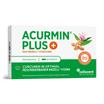
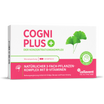
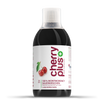
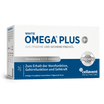
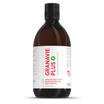
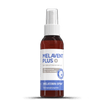
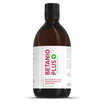
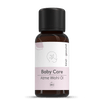
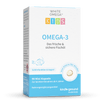
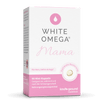


Leave a comment
This site is protected by hCaptcha and the hCaptcha Privacy Policy and Terms of Service apply.